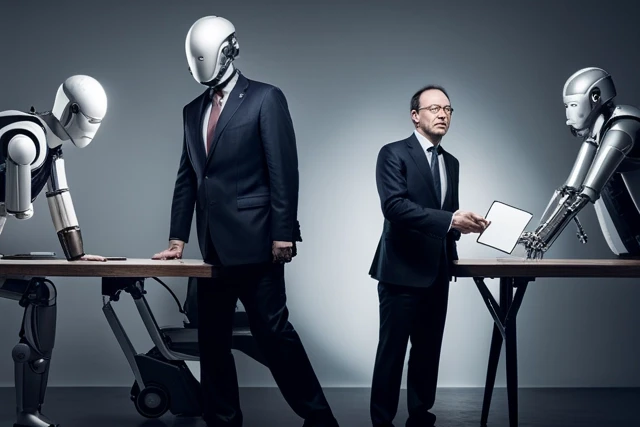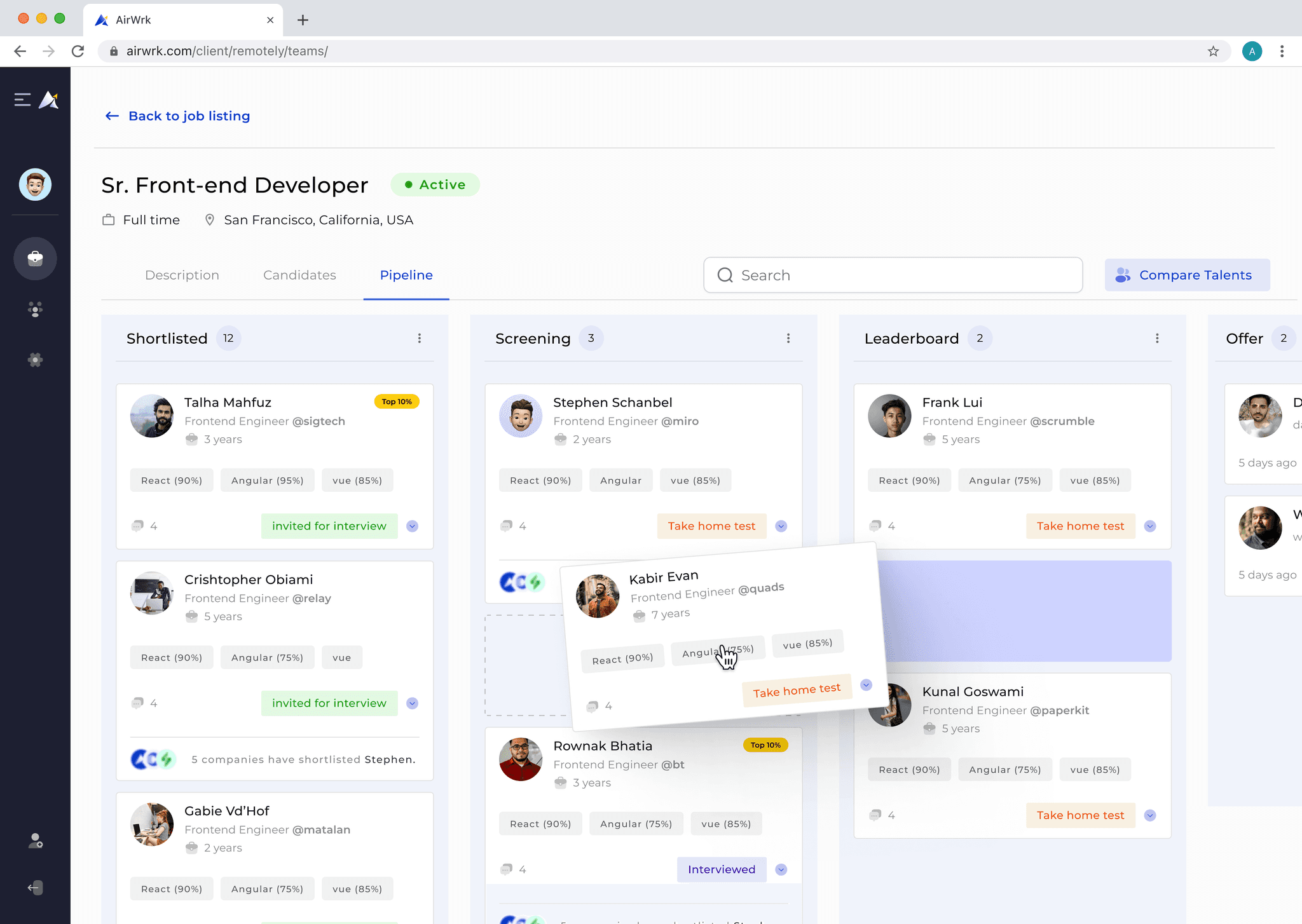Will AI take away my job? Your questions on AI answered

Campus Leaders
Sep 12, 2022
We have all been hearing the alarm bells of machines taking over our jobs and AI infiltrating everything we love and enjoy, especially after ChatGPT and Midjourney AI became household names. But how much of it is rooted in reality and how much of it is (science) fiction?
Let’s start with defining AI. The goal of Artificial Intelligence (AI) is to develop machines and systems that are capable of reasoning, learning, perception, decision-making, and natural language processing tasks that typically require human intelligence. AI can be divided into two main branches: Narrow AIand General AI. We are all more or less aware of Chat GPT as it is the buzz right now. ChatGPT, as impressive as it is, belongs to the category of Narrow AI.
Some of the most notable Large Language Models (LLMs) are GPT-3.5 and GPT-4, developed by OpenAI, a research organization dedicated to creating and ensuring AI’s safe and beneficial use for humanity. GPT-3.5 was released in 2022 and had 175 billion parameters, while GPT-4 was released in 2023 and had 1 trillion parameters. GPT-4 is considered the most powerful LLM to date, capable of generating high-quality texts on almost any subject, given a suitable prompt.
AI as a career choice – a smart decision?
Artificial Intelligence (AI) is a rapidly growing and exciting field with a wide range of career opportunities. Here are just a few reasons why a career in AI could be the perfect fit for you:
High demand and competitive salaries. The demand for AI professionals exceeds the supply, leading to high salaries and excellent career growth prospects.
Intellectual stimulation. Working in AI is challenging and rewarding, as you’ll be solving complex problems and pushing the boundaries of what’s possible.
Continuous learning and innovation. AI is a rapidly evolving field, so you’ll never be bored. There’s always something new to learn and explore.
Interdisciplinary nature. AI draws on knowledge from a variety of fields, so you’ll have the opportunity to collaborate with experts from different backgrounds.
Entrepreneurial opportunities. The field of AI is ripe for entrepreneurship. If you have a great idea, AI expertise can help you bring it to life.
Continuous career growth. AI is still in its early stages, so there’s plenty of room for career growth and professional development.
What skills and knowledge do you need?
Becoming proficient in AI involves a range of skills and knowledge areas. Here are some specific ones:
Programming Languages: Proficiency in Python, R, and Julia is crucial for coding A.I algorithms, data manipulation, and model development.
Machine Learning Fundamentals: Understand core ML concepts like regression, classification, clustering, and neural networks, along with optimization techniques and evaluation metrics.
Data Handling and Analysis: Skills in data preprocessing, cleaning, and analysis are essential, including working with structured and unstructured data.
Data Visualization: Proficiency in tools like Matplotlib, Seaborn, or Tableau to visually represent and interpret complex data patterns.
Deep Learning: Understanding architectures like convolutional neural networks and recurrent neural networks for advanced AI applications.
Natural Language Processing: Knowledge of how to process and analyze human language data, including techniques like sentiment analysis, and named entity recognition.
Cloud Computing: Familiarity with cloud platforms like AWS, Azure, or Google Cloud for scalable AI solutions. Read our article on the webinar we had on Cloud Computing featuring an esteemed AWS Streaming Data Architect
While it might appear overwhelming initially, learning AI is a continuous process. The key is to adapt as the field evolves.
Will AI threaten my career?
A recent Goldman Sachs study found that generative AI tools could, in fact, impact 300 million full-time jobs worldwide, which could lead to a “significant disruption” in the job market. In particular, roles that require repetitive data entry, legal administration, and careers that involve mathematical skills – even healthcare jobs – will all be impacted by AI’s adoption. This will change the future of work but it’s not all doom and gloom, AI is also creating jobs.
According to the World Economic Forum AI is set to create somewhere around 97 million jobs. One crucial term to remember when transitioning from the current job market to the new job market shaped by AI is ‘agility’. To stay ahead in the era of artificial intelligence, it is essential to embrace lifelong learning, develop soft skills, be agile, and specialize in a particular field. Besides, although the new wave of AI advancement may automate some functions, there is no replacement for human creativity, empathy, critical thinking, and problem-solving skills.
Source: Artificial Intelligence and the Future of Employment – WSJ, How Will Artificial Intelligence Affect Jobs 2023-2030 | Nexford University, AI will kill these jobs (but create new ones, too) | Computerworld
Does the future of AI hold promise?
AI has demonstrated remarkable advancements, from natural language processing to autonomous vehicles. Its ability to analyze vast amounts of data and perform continuous tasks efficiently has transformed various industries, driving innovation and productivity. There is no stopping how AI will evolve throughout the years. The future of AI is promising, but it requires careful navigation of the opportunities and challenges it presents. Approaching AI development with a balanced perspective, and considering the potential benefits and risks is crucial. With proper planning and regulations, AI has the potential to enhance various industries and improve our daily lives.
Source: How AI Will Impact The Future Of Work And Life (forbes.com)








